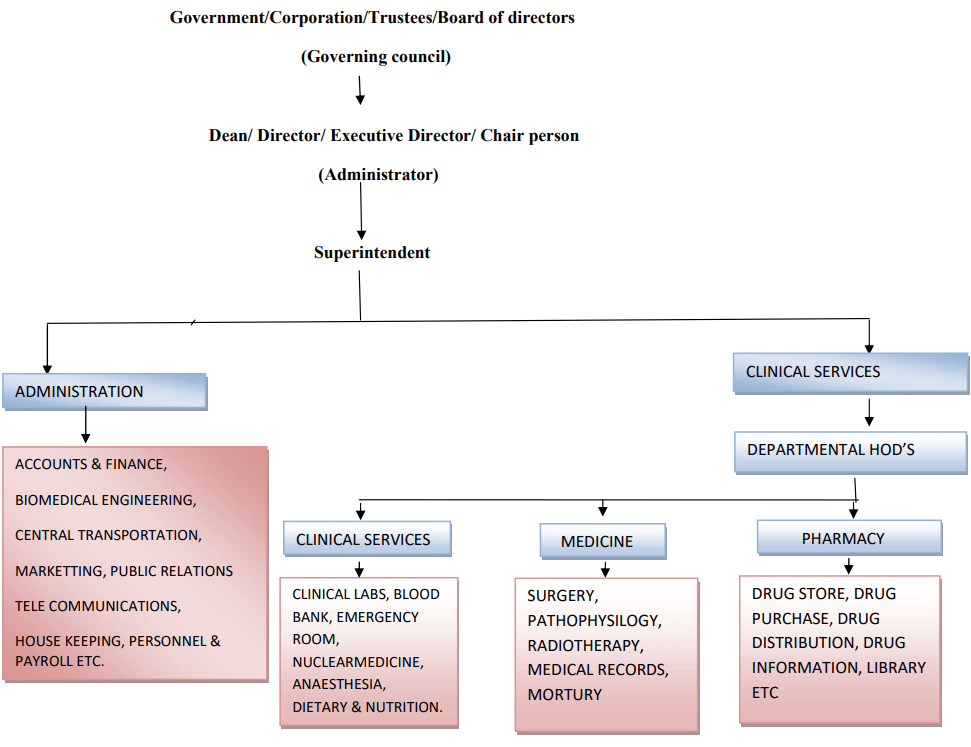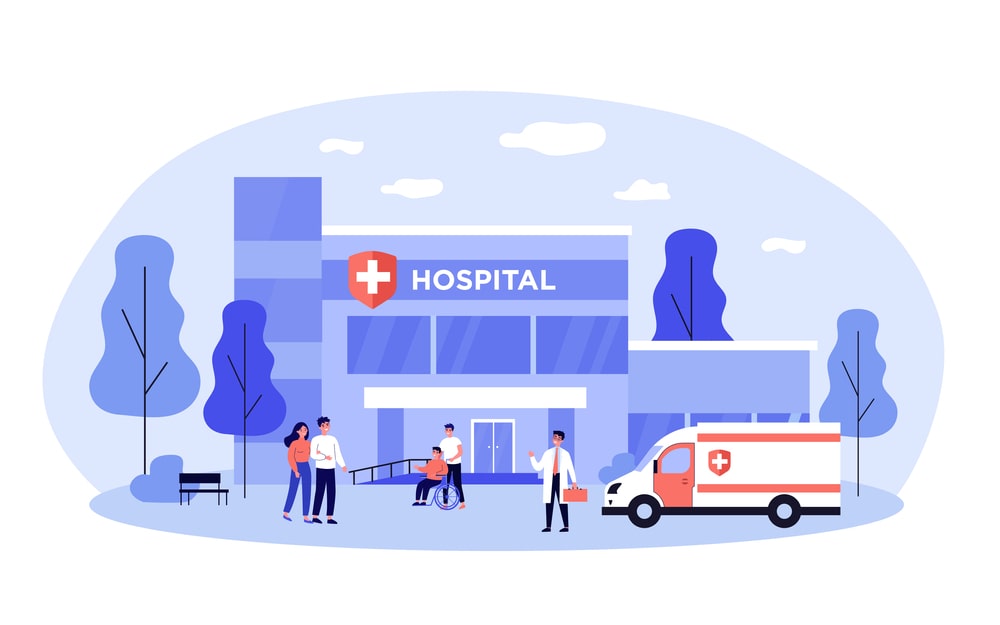Table of Contents
Introduction
The organization of hospitals is a composite organization of various specialties. The governing body has total accountability within the organization.
Hence governing body has its own internal organization consisting of a president or chairman, vice chairman, secretary, and treasurer.
Their main motto is to take overall responsibility for the proper functioning of hospitals to provide adequate services to patients at low cost with maximum efficiency.
On many boards the chief executive officer (CEO) of the hospital serves as secretary i.e. he must produce a two-way channel of communication between the board, hospital staff, and the personnel.
He takes overall responsibility assigned by the governing board and depending on the size of the hospital there may be one or more administrations reporting to the CEO.

Main Services
a) The Medical Staff: All hospitals should have medical staff responsible for the medical care of the patients. These are again divided into
b) Resident Medical Officer (RMO): He should be available on a 24-hour basis and take care of the needs of both patients and the hospital.
c)Consultants: These are medical practitioners who are experts in specific areas of medicine. They pertained to the hospital.
d)Visiting Consultants: They practice outside the hospital and hospitals call them to attend specific areas to get options and services.
e) Harmony Staff: They are normally senior or retired medical staff. They visit the hospital regularly.
f) Departmental Hod’s: They are competent expert medical staff. Their work is to send
- Maintain quality services
- Send monthly reports of their division to the Dean.
- Preparing the budget of their divisions.
- Recruitment of the staff.
The Supporting Services:
a) Anaesthesia Services: Here service is provided by an Anaesthesiologist.
b) Blood Bank: A license of Form 28c is required under the supervision of a licensed physician. Storage facilitates shall be specified as per D&C rules.
c) Central Sterile Supply: All necessary requirements are supplied in sterile conditions to nursing and surgical units including needles, syringes, Lenin, and other surgical supplies.
d) Radiology: This department of the hospital is necessary for diagnostic and therapeutic purposes. The department is under the supervision of a Radiologist.
e) Medical Record Service: All patient records with specific separate codes and all records must include detailed clinical information to enable another practitioner to effectively consult care of the patient.
f) Nursing Services: It encompasses health promotion, care, and prevention of disease rehabilitation, counseling, and emotional support. It is an integral part of the health care system.
g) Dietary Services: Diet plays an important role in the proper absorption of drugs. The department runs under the supervision of a Dietician. Their staff contributes up to 12% of the total staff.
h) Housekeeping Services: Hospitals must require this department to maintain proper sanitation, hygiene, and a sterile environment in the hospital by mopping, waxing, linen service, sterilization of the rooms, etc. Proper disposal of waste is a must for every discipline like
- Solid waste disposal.
- Carcinogenic waste disposal.
- Effluent disposal etc.
Pharmacy Services:
It is an extensively used therapeutic arm of any hospital. They provide dispensing services to inpatient wards and outpatient departments.
The function of hospital pharmacy begins with the procurement of drugs and ends with their distribution.
Administration:
This includes,
a) Accounts & Finances: This department looks over the financial setting up for the hospital. They look after the capital requirement for the purchase of required materials and even look for expansion of the hospital.
b) Bio-Medical Engineering: This department is responsible for maintaining all the equipment that is needed for the hospital.
c) Central Transportation: They take care of both internal and external transportation. The internal transportations include conveyor belts, trolleys, elevators, etc. External transportation includes Ambulance services etc.
HR & Marketing Departments:
This involves planning, organizing, staffing, directing, controlling, communicating, co-coordinating, and decision-making. They are also held responsible for on-duty work schedules, job introductions, training, and supervision of staff welfare.
Make sure you also check our other amazing Article on: Functions Of Hospital
